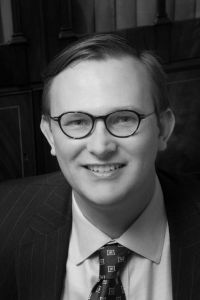This review originally appeared here in The American Conservative.
In The Daemon Knows, published in 2015, the heroic, boundless Harold Bloom claimed to have one more book left in him. If his contract with Simon & Schuster is any indication, he has more work than that to complete. The effusive 86-year-old has agreed to produce a sequence of five books on Shakespearean personalities, presumably those with whom he’s most enamored.
The first, recently released, is Falstaff: Give Me Life, which has been called an “extended essay” but reads more like 21 ponderous essay-fragments, as though Bloom has compiled his notes and reflections over the years.
The result is a solemn, exhilarating meditation on Sir John Falstaff, the cheerful, slovenly, degenerate knight whose unwavering and ultimately self-destructive loyalty to Henry of Monmouth, or Prince Hal, his companion in William Shakespeare’s Henry trilogy (“the Henriad”), redeems his otherwise debauched character.
Except Bloom doesn’t see the punning, name-calling Falstaff that way. He exalts this portly, subversive figure as the charming master of deception and rogue scheming, and more importantly as a courageous vitalist “unmatched in all of Western imaginative literature.” Bloom’s astounding reverence for this clever, corrupting, calculating, mischievous Bacchanalian—whose life-affirming zest is as delightful as it is disconcerting—reveals he’s capable of the same kind of strategic indulgence that animates his transgressive subject.
His opening lines establish an affectionate, worshipful tone: “I fell in love with Sir John Falstaff when I was a boy of twelve, almost seventy-five years ago. A rather plump and melancholy youth, I turned to him out of need, because I was lonely. Finding myself in him liberated me from a debilitating self-consciousness.”
This isn’t academic prose. Bloom doesn’t write scholarship in the sense in which English professors, who chase tenure and peer approval, understand that term. Could you imagine a graduate student in literature showing up at the Modern Language Association’s annual convention and pronouncing from behind a podium that “Falstaff wants us to love him”? Or that Falstaff “is the mortal god of our vitalism and of our capacity for joyous play of every kind”? That would end a career before it began.
To hold Bloom to professional academic standards is fundamentally to misunderstand the man. His criticism is art unto itself; it’s genre-defying literature: part memoir, part fiction, part psychoanalysis. He’s a character of his own creation, as imaginary as Falstaff, and yet real and alive. In his psyche, the mysteries of which he plumbs with Freudian apprehension, Falstaff, too, is alive—and more than that, he’s a deified “embassy of life.” Bloom calls him the “greatest wit in literature,” whose vices “are perfectly open and cheerfully self-acknowledged.”
Immediately objections spring to mind: Didn’t Falstaff take bribes from competent soldiers who wished to avoid battle, thereby dooming his innocent, rag-tag band of unready troops? Doesn’t this bawdy gambler fake his own death to avoid injury and then seek credit for Hal’s slaying of Hotspur? Isn’t he a compulsive liar and self-serving fabricator? Rather than earn his keep, doesn’t he mooch off borrowed and stolen money while fraternizing with lowly criminals in disreputable taverns? Doesn’t he find stealing entertaining? Doesn’t he fail miserably in his attempt to seduce married women? Doesn’t he thrive in the seedy underbelly of impolite society?
No matter. The venerating and visionary Bloom sees Falstaff’s flaws as part of his appeal. Falstaff, prefiguring Nietzsche and Sartre, stands outside ethical jurisdiction as the lovable übermensch, the seductive sum of his own deliberate actions and unbridled agency in a world without God. Falstaffianism can be reduced to an abrupt imperative: “do not moralize.” These are Bloom’s italics, emphasizing, perhaps, the enthusiasm with which Falstaff rebuffs normative codes and basic standards of decency, vivaciously embracing the self—the subjective, knowing, self-aware “I” that wills a future into being—with laughter and existential rapture.
Kate Havard argues in Commentary that “Bloom must actually reckon with the sorts of things Falstaff does that would seem monstrous in real life.” I’m not sure about this mandate. Everyone is susceptible to wickedness. We’re fallible. Yet the magnitude of our evil acts is proportionate only to our capacity and will for achieving them. Greater power over others has the potential to increase the enormity of our chosen wrongs. Two hearts, equally blameworthy, can enact varying degrees of harm. With our meanness and malevolence, depravity and double-dealing, we’re all like Falstaff at some instant, even if we “cannot say that we are Falstaff’’ (my italics this time) because Falstaff cannot be universal—he’s too shrewd, raucous, and riotously convivial to be an archetype.
That we haven’t occasioned rank violence or mass damage is only evidence of our own powerlessness to do so in our moment of darkness. Our minds have contemplated horrors that our bodies never brought to bear. Knowing this, one begins to appreciate Bloom’s melancholy voice in such an adoring account. “Falstaff is no everyman,” he intones, “[b]ut all of us, whatever our age or gender, participate in him.” This truth, if it is one, doesn’t excuse Falstaff; rather it makes his decisions disturbingly recognizable.
Falstaff stands for absolute freedom, challenging dogmatic pieties even as he uses them to his advantage. He signals human choice and authenticity, but he’s elusive and multifaceted. “There is no single Falstaff,” Bloom submits. “In my youth and middle years I thought I knew Falstaff. That Falstaff has vanished from me. The better I know Sir John the less I know him. He has become one of the lost vehemences my midnights hold.”
This tragicomic Falstaff is so complex and ambiguous that he undermines expectations, avoids patterned behavior, and escapes simple explanation. “Falstaff is as bewildering as Hamlet, as infinitely varied as Cleopatra,” says Bloom. “He can be apprehended but never fully comprehended. There is no end to Falstaff. His matrix is freedom but he dies for love.”
Falstaff is a more cunning and charismatic version of Chaucer’s drunkenly crass miller, whose hilarious tale of casual adultery lacks the stark intentionality that makes Falstaff so treacherously in control. He’s like a flatulent Santa Claus, without the meekness or mildness of Christian self-denial. He is, in a word, exuberant, and as Bloom opines, “Exuberance in itself is a shadowy virtue and can be dangerous to the self and to others, but in Falstaff it generates more life.”
Bloom commendably acknowledges the charges leveled against him: “I am weary of being accused of sentimentalizing Falstaff.” He says he’s “been chided for sentimentality when I observe Falstaff betrays and harms no one,” and he pleads with us to enjoy Shakespeare’s rendering of the Fat Knight, adding, “Do not moralize.” The point is not to elicit agreement but to move you emotionally, although his expressive mode is less sentimental than it is spiritual or mystical. He has a jovial appetite for living, thinking, and loving that resembles Falstaff’s in its sheer capaciousness—hence his aside that he’s a “lifelong Falstaffian.”
The Book of Genesis asserts that God made man in his image. One wonders whether Bloom’s ecstatic Bardolatry—he once called Shakespeare “a mortal god”—leads to a different but related conclusion: that Shakespeare, as God, created Bloom in Falstaff’s image. Although age has thinned his once corpulent physique, Bloom is, at times, the boastful embodiment of the bombastic, iconoclastic genius (Sir John) whose chief weakness is his fondness and devotion. At other times, he’s a prophetic seer haunted by the daemon, devoid of merry wit, laughter, or redemptive charm and enthused by ineffable forces to cry out with beautiful despair and angst. His gusto seems ever-present, as does his displayed interiority.
Yet there is no single Bloom. You may think you know him, but then he vanishes as a lost vehemence.
“He has never abandoned me for three-quarters of a century,” Bloom muses of Falstaff, “and I trust will be with me until the end. The true and perfect image of life abides with him: robustly, unforgettably, forever. He exposes what is counterfeit in me and in all others.” Perhaps that’s why Falstaff is so threatening: he lays bare that manipulative, liberated part of ourselves that we don’t acknowledge or even fathom, that’s alienated and estranged from other people, accessible only to the “I myself”—the only thing we know that we know.


